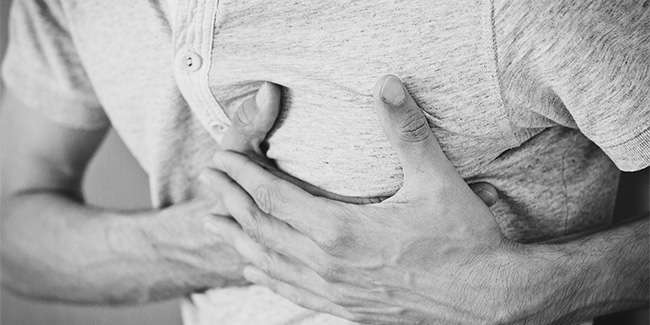
When your heart feels like it is skipping a beat, fluttering, or beating too hard or too fast, you are suffering heart palpitations. The feelings may develop in the chest, throat, or neck. They can hit you while you are performing an activity or even when you’re sitting still or lying down.
There are many triggers to heart palpitations, such as strong emotions, vigorous physical activity, medicines (diet pills and decongestants), caffeine, alcohol, nicotine, and illegal drugs, and certain medical conditions (thyroid or anaemia).

Living with heart palpitations
Heart palpitations mostly go away on their own and are harmless. These cases do not need any treatment. You might just want to avoid the triggers for palpitations and you will be good to go.
Though palpitations are harmless, you must see your doctor if they get worse, start to occur more often, become more noticeable or bothersome, or occur with other symptoms.
Your doctor will tell you about other signs and symptoms that you should be aware of. They will also tell you about when to be warned by the palpitations and seek medical care. If your palpitations are a result of a medical condition, your doctor will prescribe you a treatment for it.
The most appropriate way to treat palpitations at home is to avoid the triggers that may cause your symptoms.
Some ways to avoid triggers include:
Reduce stress or anxiety: Try relaxation techniques, such as meditation, yoga, or deep breathing or aromatherapy.
Avoid stimulants: Stimulants, including caffeine, nicotine, some cold medicines and energy drinks, can make your heart beat quickly or irregularly.
Avoid illegal drugs: Certain drugs, such as cocaine and amphetamines, can bring on heart palpitations.If you have heart palpitations with severe shortness of breath, chest pain or fainting, you should seek emergency medical attention. If your palpitations are brief and there are no other worrisome signs or symptoms, make an appointment to see your doctor.
How we keep this article up to date:
We work with experts and keep a close eye on the latest in health and wellness. Whenever there is a new research or helpful information, we update our articles with accurate and useful advice.
Current Version